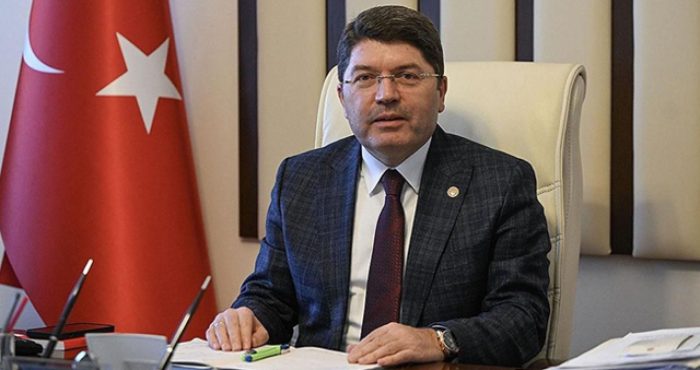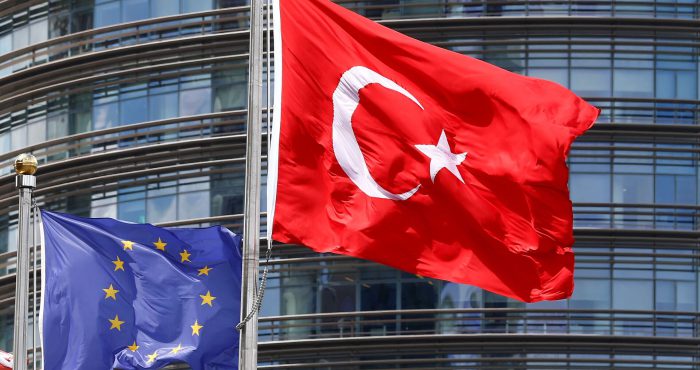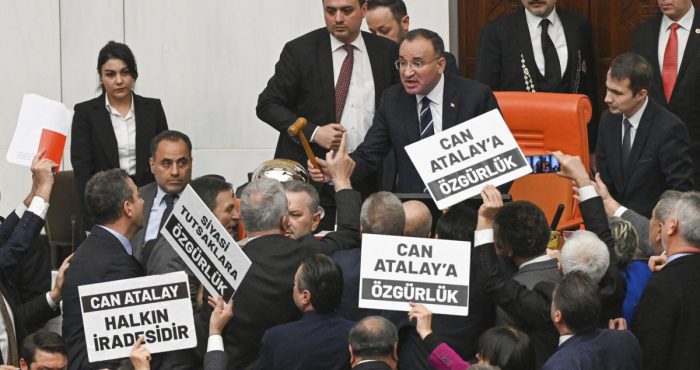The elections are nearly upon us. On Sunday, the 14th of May 2023 we will choose our members of parliament and a new, all-powerful president to lead our state. For the 5 years that follow, we will be able to make complaints only about the running of things; there won’t be a single action we can take to fix their mistakes, make up for their shortcomings, and ensure they make the right decisions.
The new president will be able to appoint ministers, chief counsel, deputy-ministers, and high-level bureaucrats without consulting anyone and without any accountability. Unless he chooses to restrain himself and take to his role with a democratic attitude, the new president will become our de facto despot and his appointments will be no different from a king’s men, untouchable.
Unjust contest, savage and merciless
This nation of 85 million is a gargantuan prize! Politics is concerned not with growing the yearly $900 billion pie, but rather with high-handedly doling out the people’s hard-won fruits and placing itself first in the line of recipients. It should not surprise then, that these elections are as unjust and savage as they are. As much was seen when Meral Akşener said, “Snakes slither about these [earthquake] tents!”.
A truly unjust election upon us. Where there should be equal competition and election of the most competent, we have instead almost two different races being run by the incumbents and the opposition. The president and ministers are exempt from electoral prohibitions. According to the Supreme Election Council (YSK), ministers aren’t even public officials; it’s as if they are some privileged monstrosity that performs a public role, exercises its authority, and yet is not to be held responsible!
The incumbent party has received two times as much campaign aid as the main opposition from the Treasury. As if that were not enough, President Erdoğan, ministers, and the ruling party are making full use of the state’s resources to give flight to their campaign. It’s an election no different than those of the 1950s: on one side the incumbents, desperate to keep the state in their clutches, crying ceaselessly “The state is mine!”, while the opposition would conquer it for themselves!
The YSK is fanning the flames of injustice
The numbers of the dead and the migrants of the earthquakes, some of whom were found having wasted away underneath the rubble – read voters by politicians – has still not been determined, as a matter of fact, or law. It is estimated that 4 million people have migrated from the earthquake – sorry – electoral zones greatly decreasing the population of those areas and increasing the others. And yet, an election is to be held without census data being properly updated to reflect the plight of these people.
The population and number of voters in an electoral district is stored in digital databases and can be determined down to the smallest detail in an instant. Furthermore, the number of MPs per province and the electoral roll are established according to those records. And yet it seems that, for the YSK, the Kahramanmaraş Earthquake never happened on the 6th of February 2023, and millions were not displaced from the region. They have turned a blind eye to the fact that 40-60 percent of the effected area’s population were forced to leave their electoral districts and move to others. The YSK completely ignored this huge movement when it determined the number of MPs per province according to the Turkish Statistical Institute’s (TÜIK) data from the 31st of December 2022.
The movement of people that the YSK has ignored involves nearly %5 of Türkiye’s population and electorate. Those voters who are still registered in the earthquake zones, who struggle to buy even a bus ticket, will be unable to vote come the election. In other words, nearly %5 of the electorate, who were expected to vote against the incumbents are being insidiously disenfranchised. 30 of the 600 MPs who will be elected to the TBMM will therefore not represent any constituency. It is easy to see how this number of MPs, the size of a small political party, will affect the TBMM. I presume this is also the reason why ministers have established their headquarters and candidacies in the earthquake zones.
Free to buy votes and spread disinformation
It is abundantly clear that the government was caught unprepared by the earthquake on the 6th of February. Equally clear is the cost of their failure to assess the aftermath and the needs of those effected, and to organise a response with the state’s capabilities. Those chiefly responsible for this are using an extensive disinformation campaign to place the responsibility for this on God. The nonsense they’re spreading that the earthquakes were a once-in-a-century event, that there was nothing that could be done to protect against them, hides from sight that it is poor governance that led to sale of amnesties for non-compliant buildings and the tens of thousands of lives lost.
Votes are being bought for ten a penny, something considered criminal in many states were the rule of law is upheld, and sometimes in ways that are unequivocally unlawful. President Erdoğan has even gifted natural gas from the state coffers, excluding those forced to measure even their use of liquid propane, or who can only warm themselves by their wood or coal-fired stoves. Foreign reserves borrowed at extortionately high rates to cover up incompetent economic governance are being sold in backrooms; our central bank’s reserves have wasted away. A recent article in the FT noted that the Turkish Central Bank’s foreign currency reserves net were in the negative.
The Information and Communication Technologies Authority (BTK) has silently been collecting information on the online activities of anyone who connected to the internet it turns out. Concern is mounting at the danger of such a database being used by public organs for the benefit of the government, with Kemal Kılıçdaroğlu warning, “…the darkweb circles you’re trying to come to an understanding with will see you fall prey to foreign machinations. Don’t play at being a Cambridge Analytica”. There is simply no way to know if we aren’t already subject to malicious subliminal messaging trying to influence our views, votes, and preferences. We can’t know if the database is being used already, or if what websites we visit, which articles we read, which opinions we’re exposed to, are known.
Not only is the judiciary inadequate
Sharp criticism of the president or the government, “liking” critical social media posts, unearthing corruption, bribery, and even publishing news of the sexual abuse of women and children have become tantamount to sin and criminal activity. Those who voice their criticism are arrested by the police at dawn. Meanwhile those who stage provocations at tomb visits, who all by themselves would exclude the opposition from certain parts of this country, who have attacked an opposition leader during prayer at the head of a grave saying “he cannot recite Fatiha from Ku’ran” are looked upon with benevolence. The state acts as if it couldn’t have prevented those who stoned Ekrem İmamoğlu in Erzurum. Casting a potential opposition win at the elections as a coup and using phrases like “a bullet to the body” in political rhetoric is considered nothing more than everyday chit-chat.
And in the face of all the injustices seen in election campaigns, illegal political financing, blatant misleading of the electorate and innumerable forms of disinformation, and all the vote-buying financed by the state coffers, the judiciary is unable to interfere.
Unable to fulfil its role in ensuring just and fair elections, the judiciary is being used as an instrument of political engineering, whipping depravity into the nation’s will. The struggle over the leadership of the MHP, trials, and court decisions that led to the splintering off of the IYI party, the suit against Ekrem İmamoğlu – that may have prevented his emergence as an even stronger candidate to oppose Erdoğan – and continuation of the pre-trial arrest of Selahattin Demirtaş, and the lifting of the immunity of a section of parliament as well as the Supreme Court’s decisions on the violations of fundamental rights should all be considered in this light.
There is a lot of work to do
The unofficial results of the election will become clear in the late hours of the night on the 14th of May, and the atmosphere we find ourselves in now will dissipate. On the Sunday the 15th of May the following day the cohort that is to lead our country for the next 5 years will be more or less established. It is crucial that they move on from the election cycle and its baggage as soon as possible in order to focus on the fundamental problems the country faces.
1) Trust and Empiricism in Economic Governance
Our opinion leaders and international investors say that winning back investors trust will be an immensely difficult, grotesque problem awaiting whoever wins the election. We must first establish trust in our economic leadership and government. There are many comprehensive problems that await solving including but not limited to the following important issues: reducing inflation and income inequality, ensuring our enterprises are efficient and do high value-added work, advancing the sustainability and digitalisation of the economy, improving women’s place in the economy, increasing workforce participation, reducing unemployment, and creating new fields of work for our young.
2) Judicial reform, the rule of law, and justice
It has become indisputably clear that flaws in our judiciary, the rule of law, and faltering justice lie at the foundation of every economic, sociological, and democratic problems. The root of these issues is the judiciary. The Republic of Türkiye must enter its second century having solved the issues of the rule of law and its judiciary that it was unable to in its first. This can be achieved easily and in a very short time.
Firstly, members of the Council of Judges and Prosecutors (HSK) must be chosen from among non/partisan persons, all of its decisions must be made subject to judicial review, and a Supreme Judicial Council must be established to this end. All this can be done in a very short period of time. Immediately following a single-track career plan for judges must be legislated. The assessment of judges and their reappointment according to merit on this career plan should solve the issue of the judiciary with one or two years. Finally, the law on judicial proceedings must be re-written with a modern approach to ensure the judiciary’s effective and efficient function, taking the resolution of cases within 3-4 months as its standard.
3) Democratisation, checks & balances – sustainable governance
The organisation of the state under the Presidency, inadequate and as far from a democratic approach to governance as it is, leads to unsustainable governance, inability to act in many areas, the atrophy of the collective mind, and has rendered the bureaucracy inert and robbed parliament of its purpose. A compromise must be reached between the incumbent’s position that “the head of the executive should be chosen by the people” and the opposition’s that advocates for a “strengthened parliamentary system”, and the state must be brought into balance and made subject to the best devisable system of accountability. To do this, both sides must adopt a constructive attitude and find a politically impartial person capable of guiding the parties to a consensus. The core aims of the rapprochement must at least be the following: the fair representation of all parts of the population in parliament, the balancing of the legislature against the executive and its efficacy as such, the establishing effective collaboration between the legislature and executive, public schooling, foreign relations, and establishing national civil discussion on the topics of development and fiscal policy. In any case, the system of consensus to emerge must first and foremost ensure the efficiency and efficacy of the judiciary and secure its accountability and complete independence.
4) Troubled foreign relations
Our country is surrounded by many divisions, problems, and conflicts that threaten international peace. The war in Ukraine to the north necessitates a difficult balancing act in foreign policy. The deft management of our relations with the US, NATO, and the EU on one hand, and Russia on the other, is of vital importance. The hydrocarbon resources in the Mediterranean and the issues in the Aegean and with Cyprus seem consigned to remain unsolved and are an encumbrance on our relations with the Western world. The power vacuums to our south in Syria, Lebanon, and Iraq, and the irregular fledgling powers therewith are important concerns that will have a definite impact on our future. In this situation, we must stop determining our foreign policy based on one person’s preferences and fancy and formulate it within a framework of national consensus, and we must secure an upstanding reputation with international community.
Both sides must extend and shake hands
The first condition of turning this difficult set of problems into a success is above all the creation of a spirit of national reconciliation and cooperation. Regardless of who emerges victorious, both sides must immediately reach out to the other side, reciprocate, and work towards the creation of this spirit. Cultivating a spirit of national reconciliation is the most sustainable and sure-fire way of successfully tackling the problems our country faces. The principal focus of the rapprochement must be the judiciary and the rule of law. Only in this event will our country write the story of the great ascent it has deserved for so long but failed to write, yet.
Translated and Edited by Charles Ediz Gün




